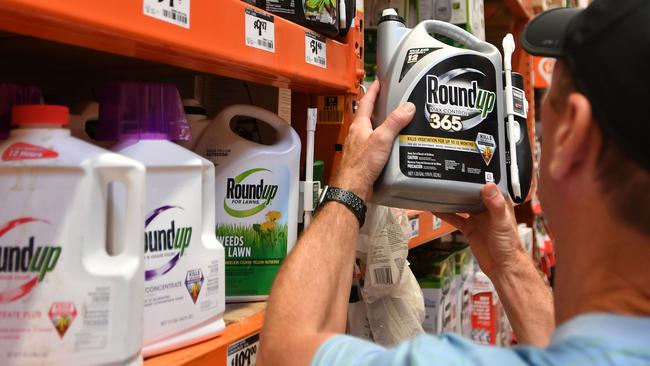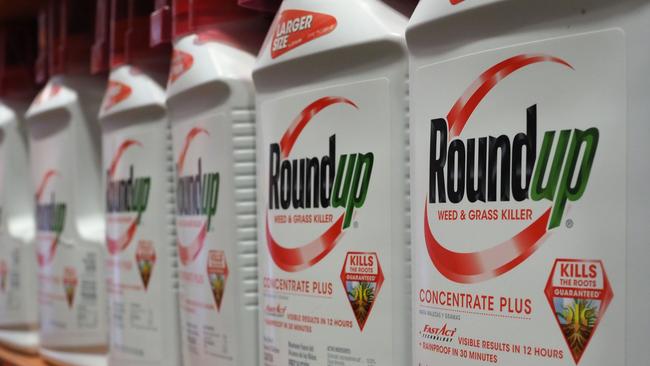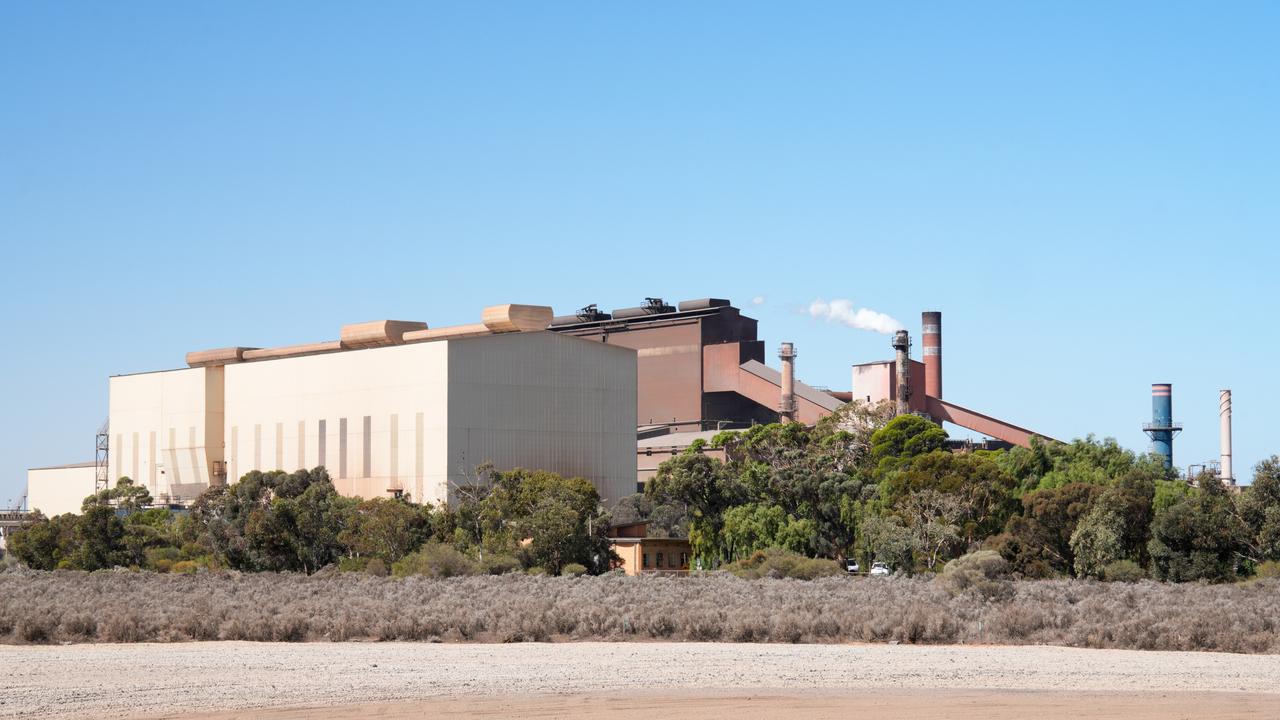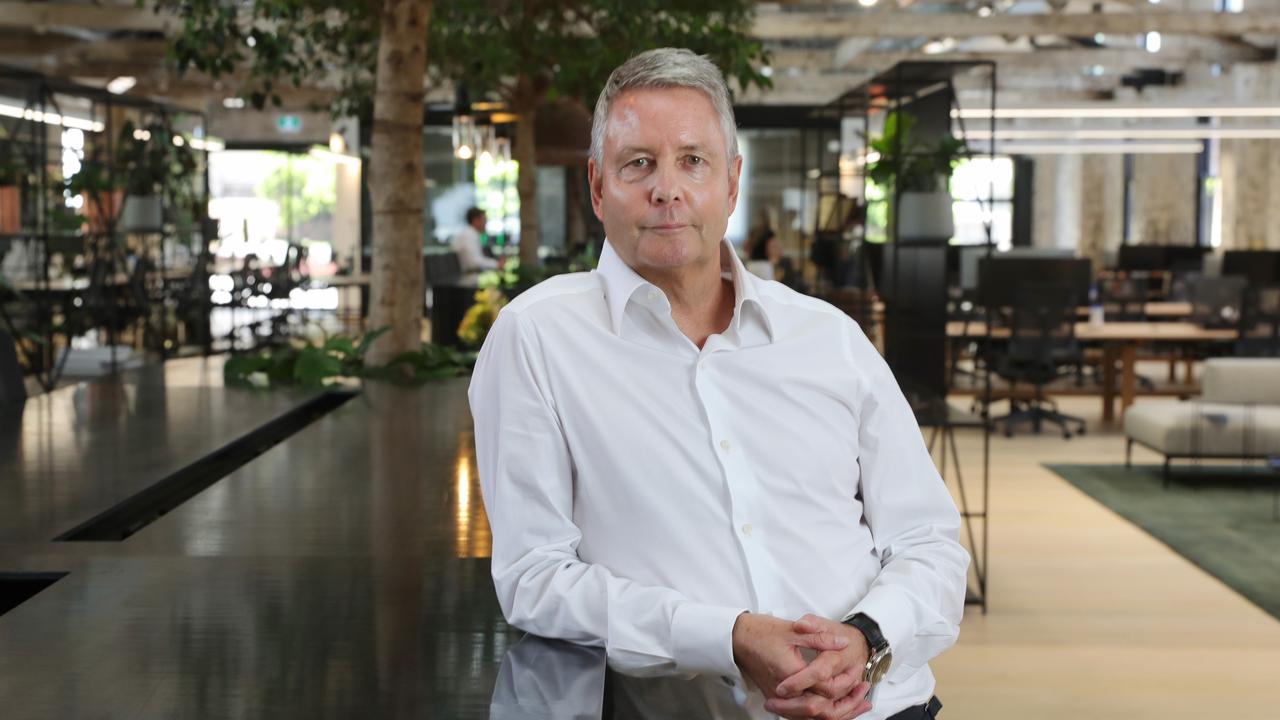Bayer in $15bn US settlement over weedkiller Roundup
Bayer will defend claims in Australia that the weedkiller Roundup causes cancer, despite paying $15bn to settle US lawsuits.

Bayer says it will actively defend class actions against it in Australia, despite paying $US10.9bn ($15.3bn) to settle tens of thousands of lawsuits with US plaintiffs - many gardeners and landscapers - who claim its Roundup products caused cancer.
The US settlements represent a milestone in the German company’s legal battle that has been weighing down its share price for nearly two years, although it’s unlikely to mean the end of legal claims in the US.
Investors have long been waiting for a settlement to bring clarity over how much the legal battle will cost Bayer.
Bayer inherited thousands of lawsuits against Roundup inventor Monsanto when it acquired the US agriculture giant in 2018. Three jury-trial losses tanked shares and sparked a revolt among shareholders angry at Bayer’s management for plunging the company into one of the worst crises in its history with the $US63 billion Monsanto acquisition.
Bayer has argued that Roundup is safe and has repeatedly defended the Monsanto deal. The company plans to continue selling the product, without altering the label.
As part of the deal with plaintiffs’ attorneys, Bayer said it would pay between $US8.8 billion and $US9.6 billion to settle claims brought by lawyers representing some 95,000 plaintiffs.
The company said it would set aside $US1.25 billion to work toward a resolution of future claims, including to establish and fund a panel to evaluate whether the product causes cancer to help shape the outcome of litigation going forward.
Brett Begemann, chief operating officer at Bayer’s Crop Science Division, criticised the US legal system, saying it focused on a “narrow slice” of the product and failed to take into account broader science and regulatory advice, which Bayer insists declares the product safe.
Despite facing similar legal action in Australia, Mr Begemann said the company would continue to market the weedkiller, which he maintained was safe, to regular domestic consumers and farmers.
“The difficulty (with the US legal system) is the plaintiffs bring forward an allegation and in the case of the courts the focus is on the narrow slice of the science of which they are challenging in the court,” Mr Begemann said.
“The breadth and wealth of science around the world and regulators around the world that have looked at the broad base of science is not brought into the court.
“Frankly, it’s a complex issue when you look at this much science behind the product. Regulators of course have the scientists on staff that are trained to look at this but it’s difficult for juries to do that.”
In a statement, the company which acquired Roundup when it paid $US63bn for Monsanto in 2018 was more scathing about the US legal system, saying it “enables a $400 billion industry”.
“Mass tort litigation, when multiple people sue a party for similar reasons, allows plaintiffs to file a lawsuit at little to no cost while facing no risk of losing money, These cases are decided by a jury of ordinary citizen, not professional judges,” the company said.

The US settlement doesn’t quite bring Bayer the immediate global peace the company had been striving for. It leaves some 25,000 to 30,000 known claims outstanding.
In Australia, Maurice Blackburn launched a class action against Monsanto in April, “on behalf of all people who have been diagnosed with non-Hodgkin lymphoma” as a result of using or being exposed to Roundup or the company’s products containing glyphosate.
Last month, the Federal Court ruled that Maurice Blackburn’s class action will be heard before any others in Australia.
“We allege that Monsanto was negligent in selling Roundup products which they knew or ought to have known could cause cancer. We also allege that the Roundup products had a safety defect and were not of acceptable quality under consumer protection legislation,” Maurice Blackburn said.
Mr Begemann said the company would “actively defend” the class action and any other litigation in Australia.
He said the US litigation, which he said was an “expensive bill” the company needed to pay to move on, had no bearing on other proceedings around the world.
“The decision to resolve these cases was driven by our desire to bring greater certainty to farmers that we serve every day. The recent pandemic has reminded us of the importance of agriculture, food and science are to the health and sustainability of our world.
“The settlement in the US has no bearing on glyphosate proceedings in any other jurisdiction where we will actively defend any and all claims concerning Roundup brought against it in Australia in courts.
“Resolving these cases will allow us to return our focus to important work at hand, developing additional innovations to help our customers whether its protecting their crops or fostering healthy environments where they and their families as well as the rest of the community live, work and play.”
Bayer is rolling the dice on the possibility of having to pay out significantly more money to future plaintiffs. The $US1.25 billion will be used to help create a class of future plaintiffs, who would be bound by the decision of a five-member scientific panel that will spend several years evaluating the link between Roundup and cancer.
The panel will report its findings to US District Judge Vince Chhabria in San Francisco. If it concludes the product doesn’t cause cancer and the judge accepts the finding, that will essentially bar future plaintiffs. If, however, the panel does find a link between Roundup and cancer, Bayer would have to fight plaintiff by plaintiff to prove an individual’s cancer wasn’t caused by the product.
The $US1.25 billion also includes some money for cancer research and for need-based relief to plaintiffs while they await the panel’s findings.
With Wall Street Journal



